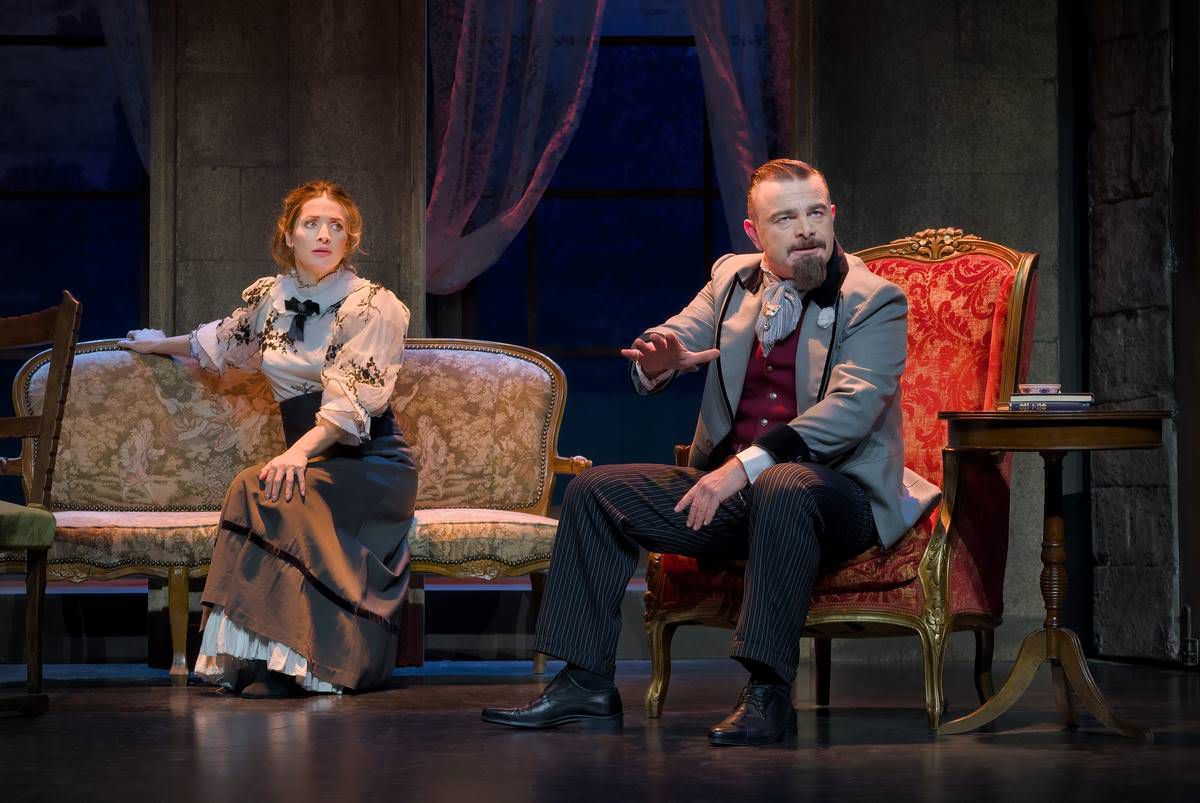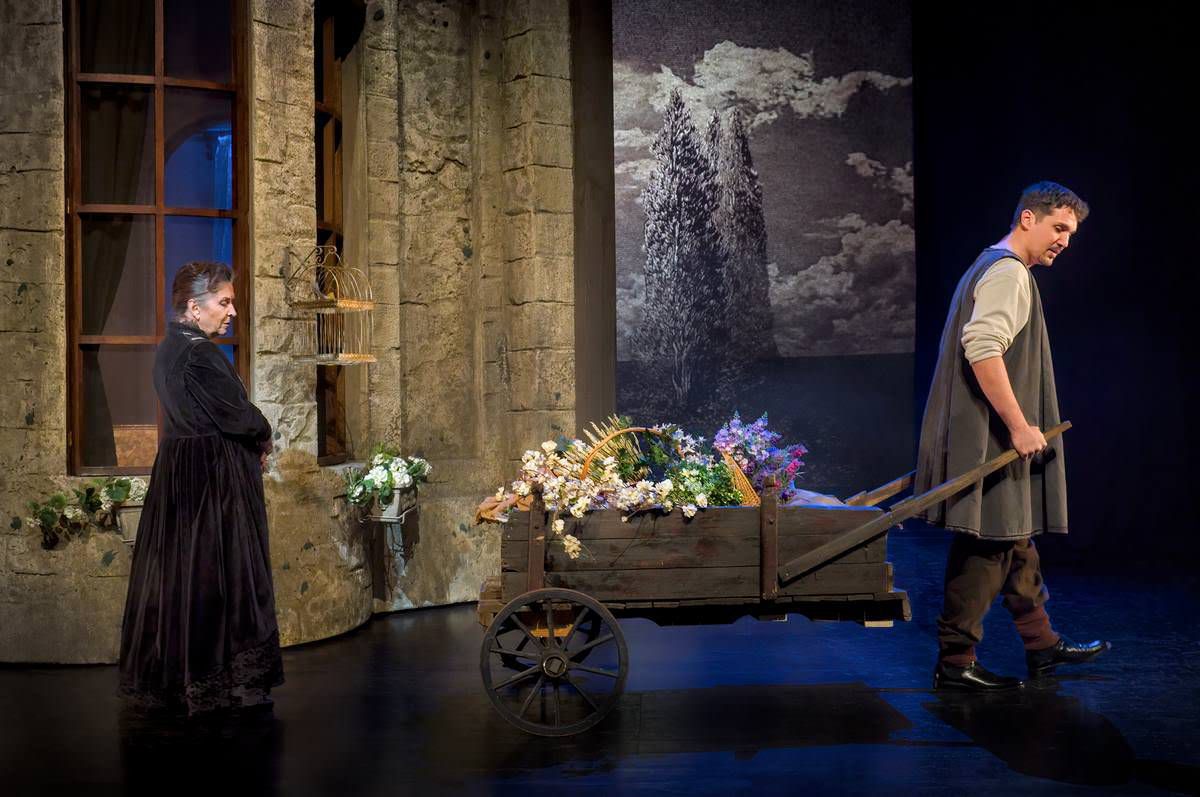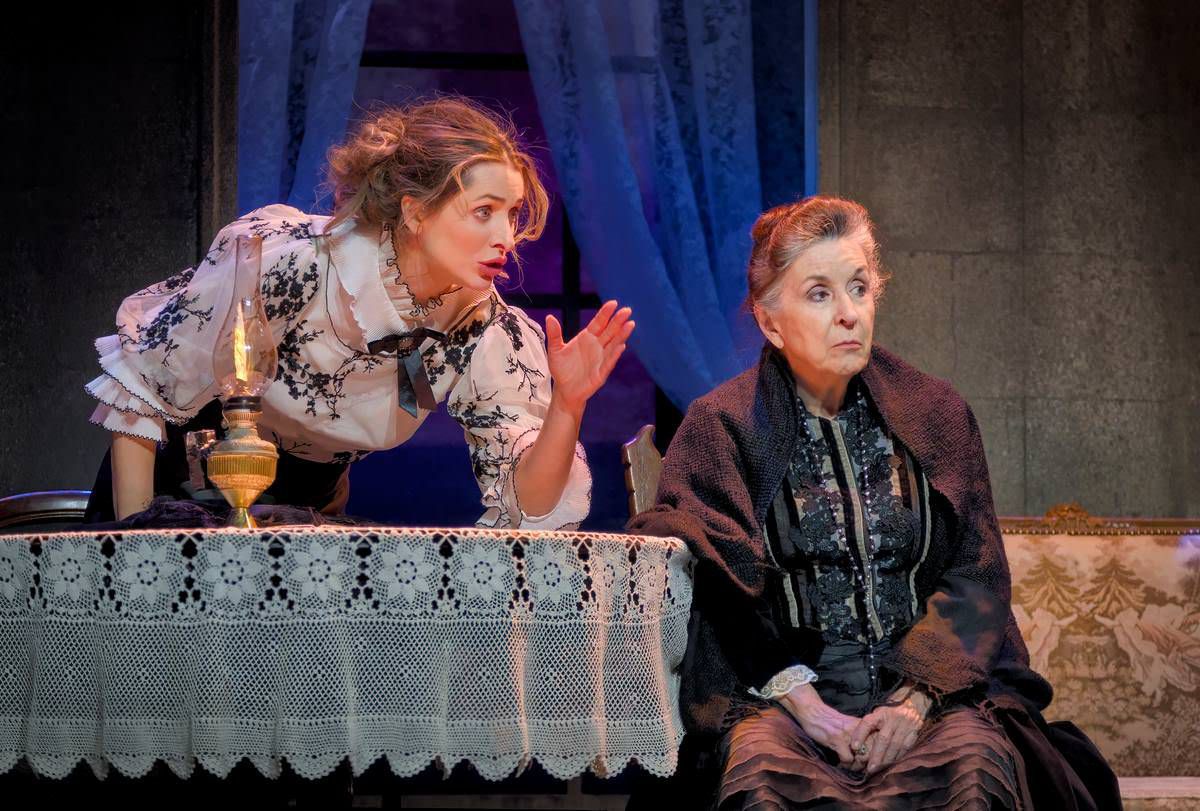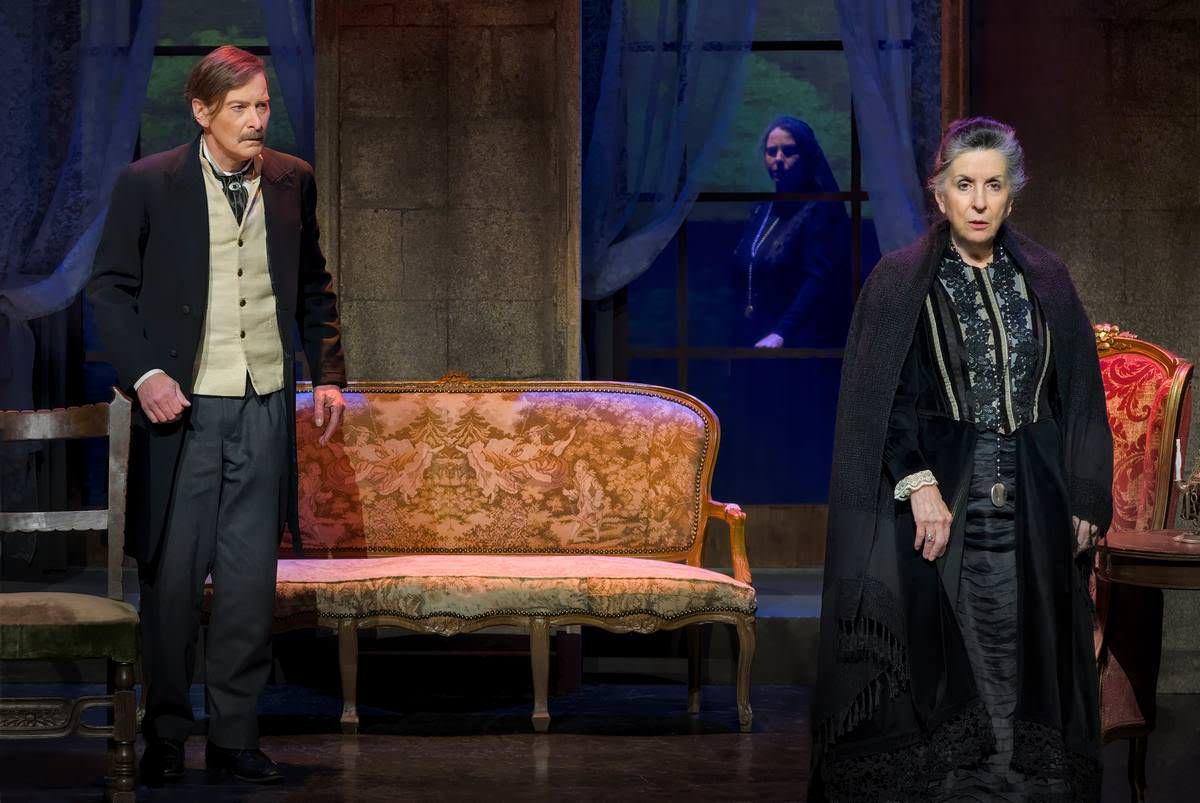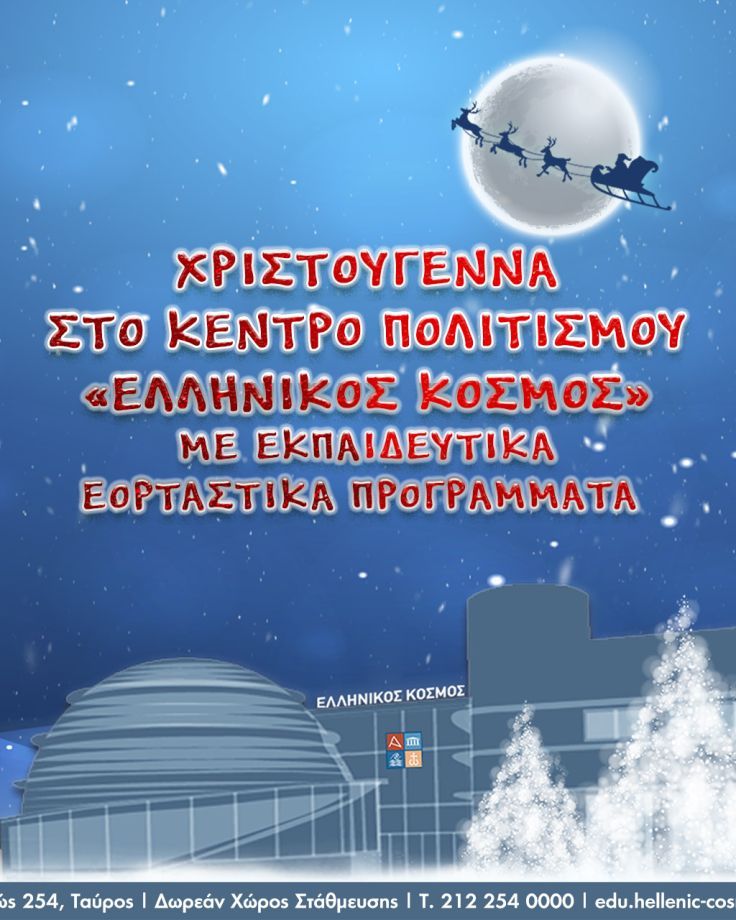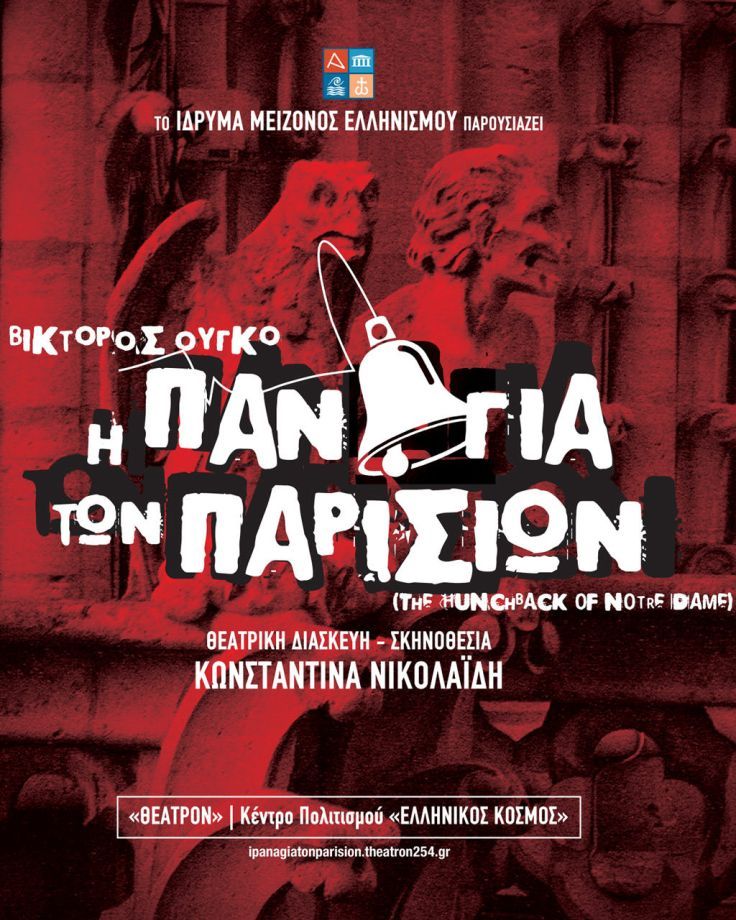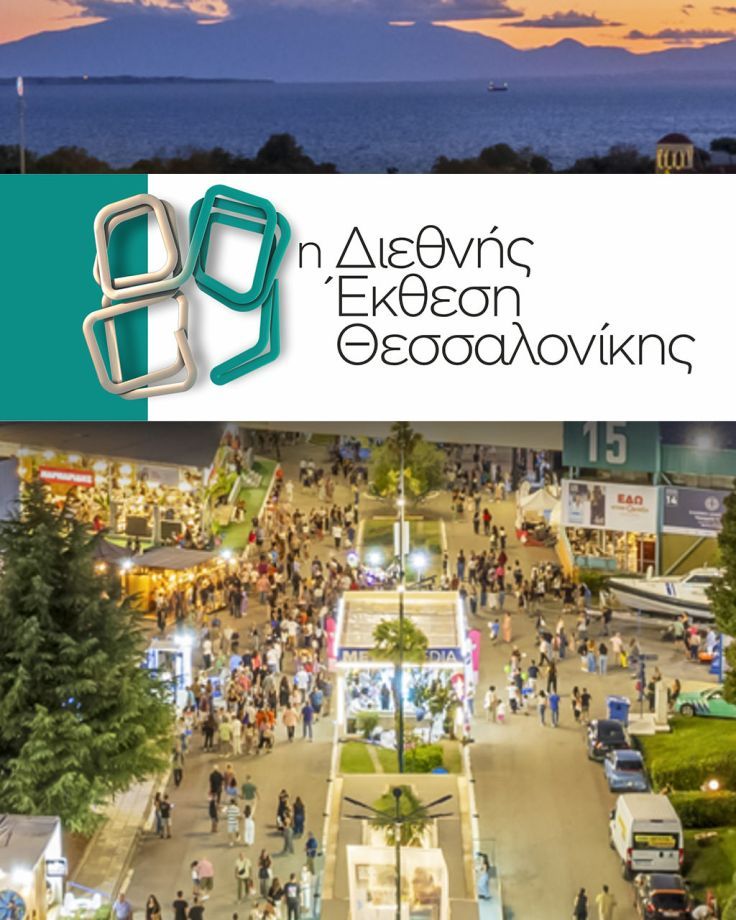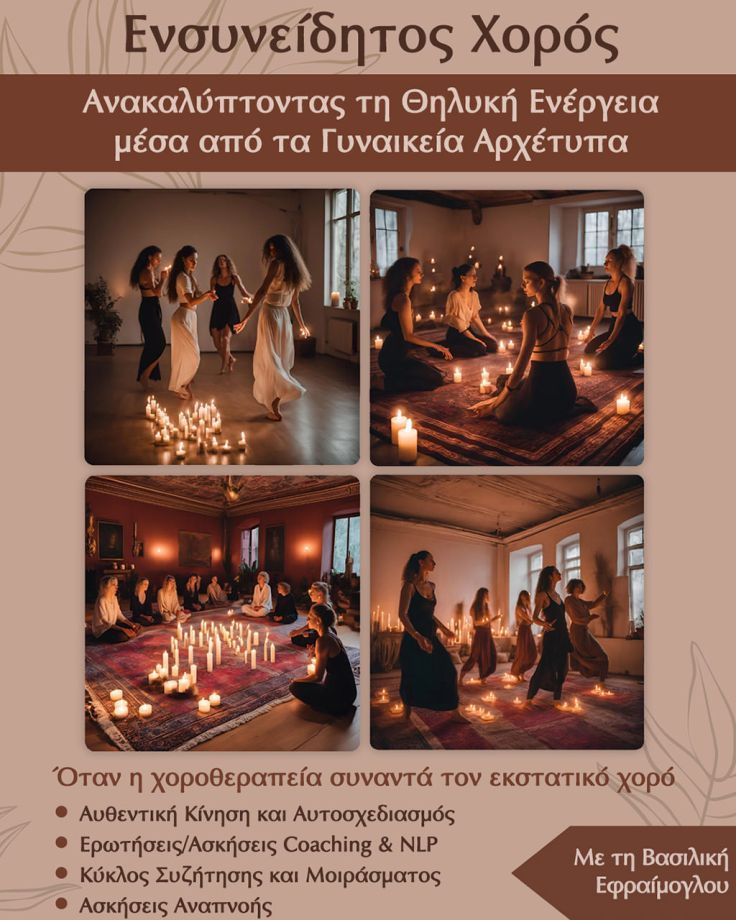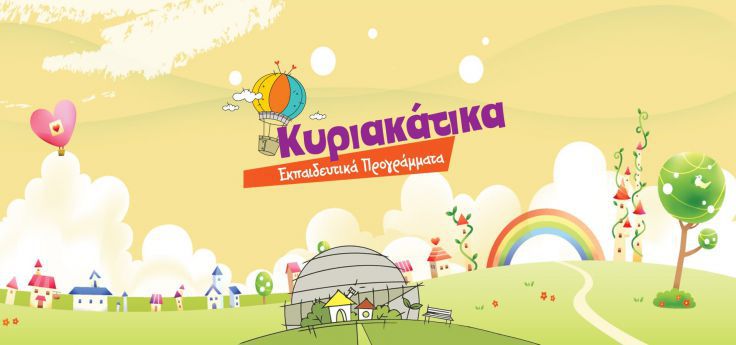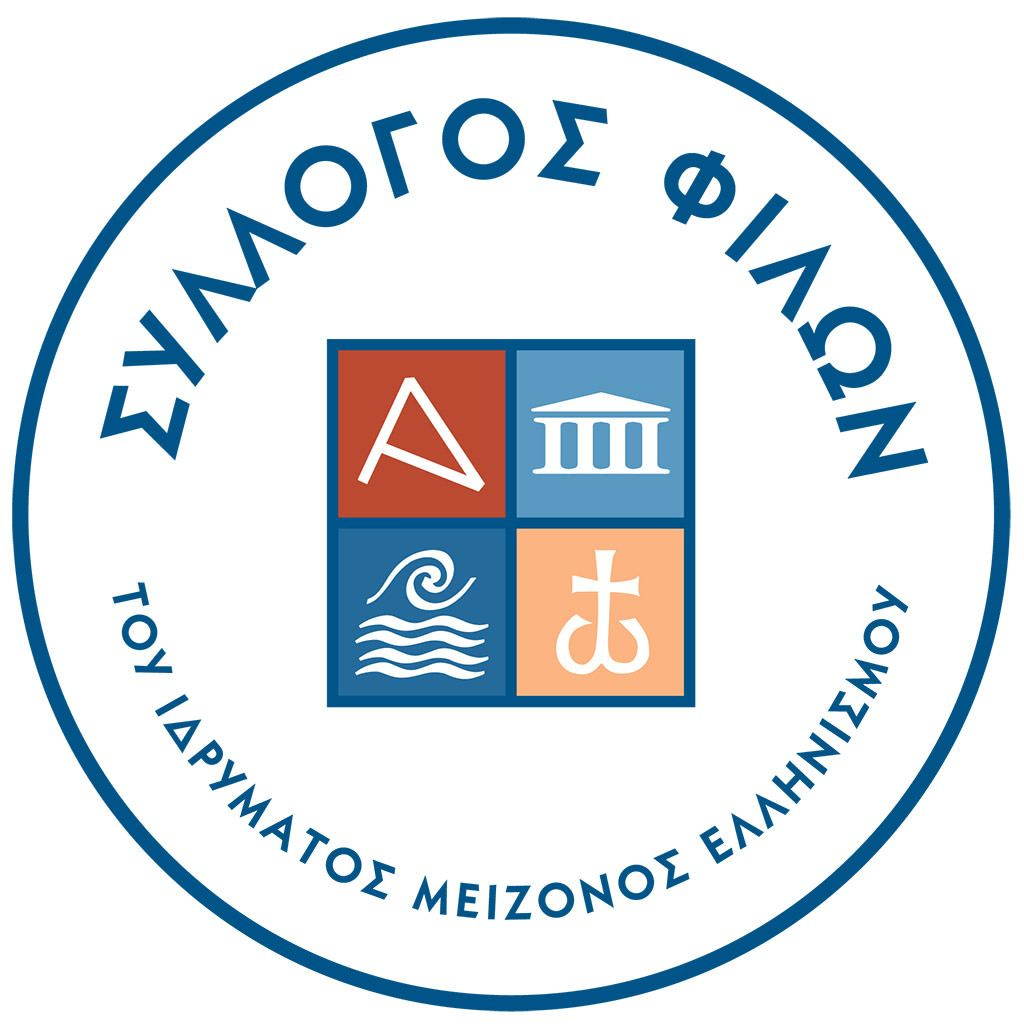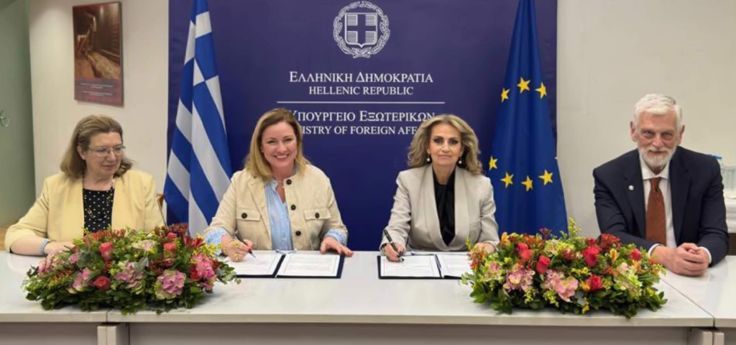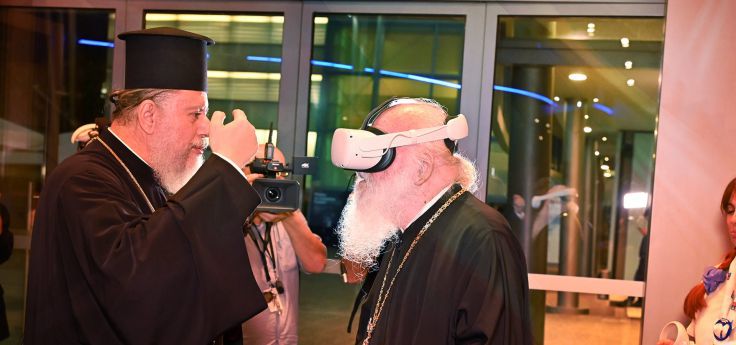This play has ended
To see all current plays at the "THEATRON" click here
by Grigoris Xenopoulos
directed by Petros Zoulias
In the role of Countess Valeraina,
the great lead actress Nena Menti
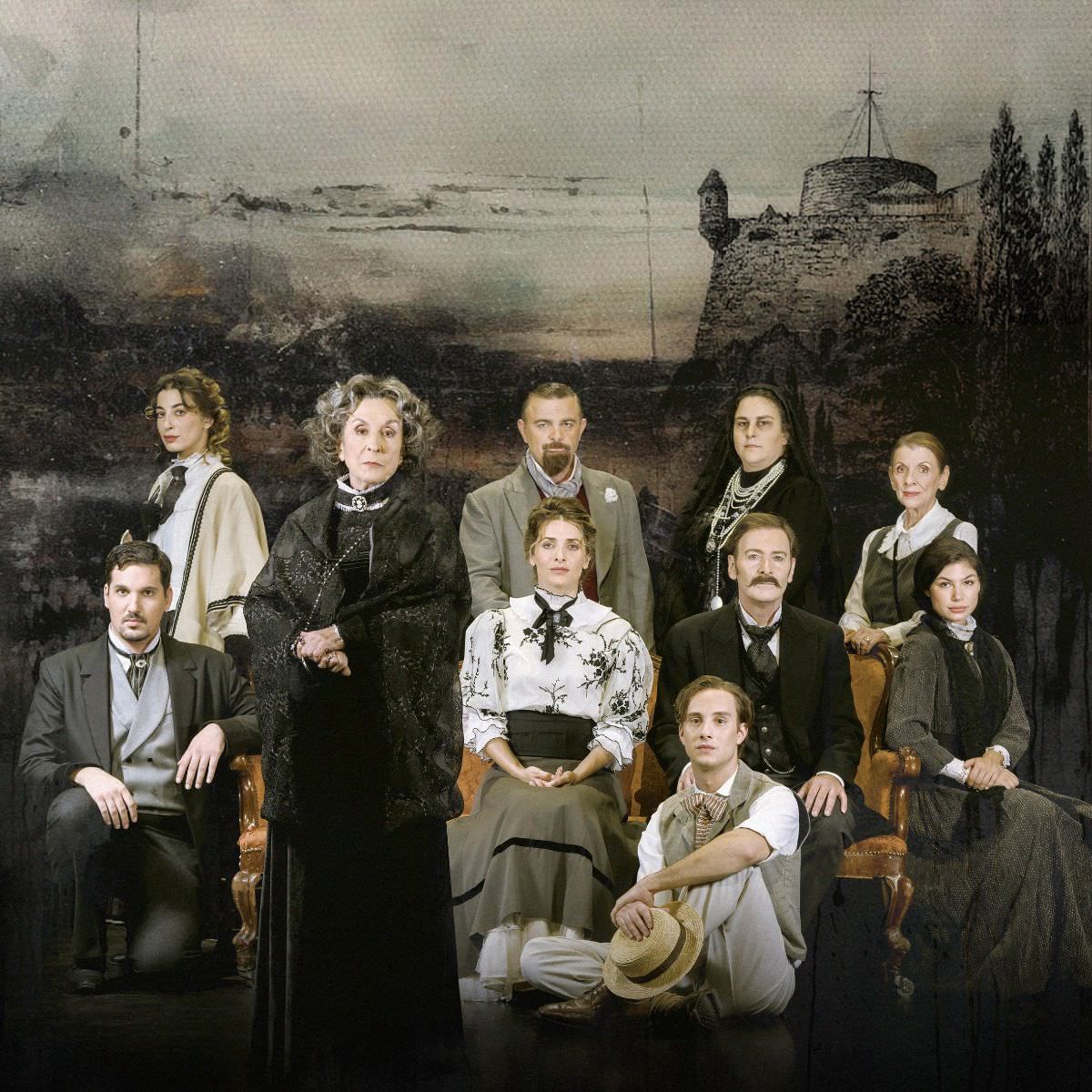
The Foundation of the Hellenic World presents the theatrical play “The Secret of Countess Valeraina” by Grigoris Xenopoulos at the “THEATRON” of the Hellenic Cosmos Cultural Centre. The direction of the classical Greek work, considered the masterpiece of Grigoris Xenopoulos, is signed by Petros Zoulias and the role of Countess Valeraina is played by the distinguished actress Nena Menti.
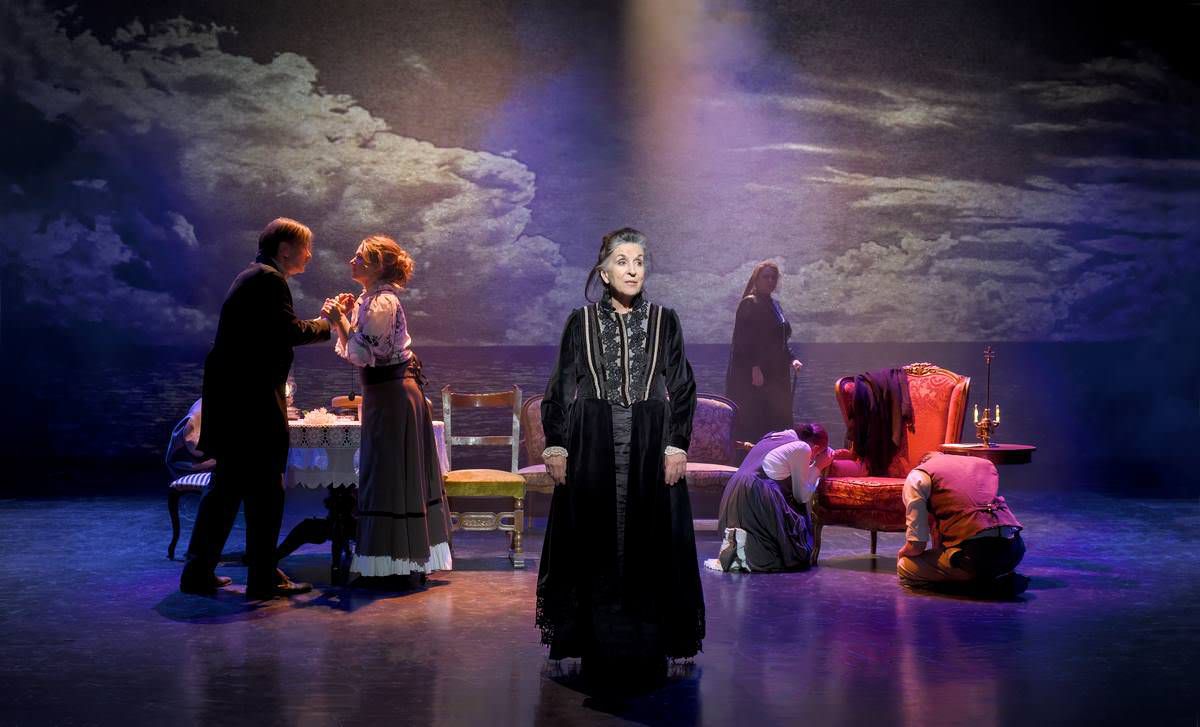
Maria Kanellopoulou takes the role of the housekeeper, Nikos Nikas plays the son Count Valeri, while Vasiliki Troufakou performs the role of the young bride. Along with them, the actors: Dimitris Kapetanakos, Dimitris Arianytsos, Mariana Tountasaki, Giorgos Loxas, Faye Fragkalioti, Anna-Maria Katsoulaki.
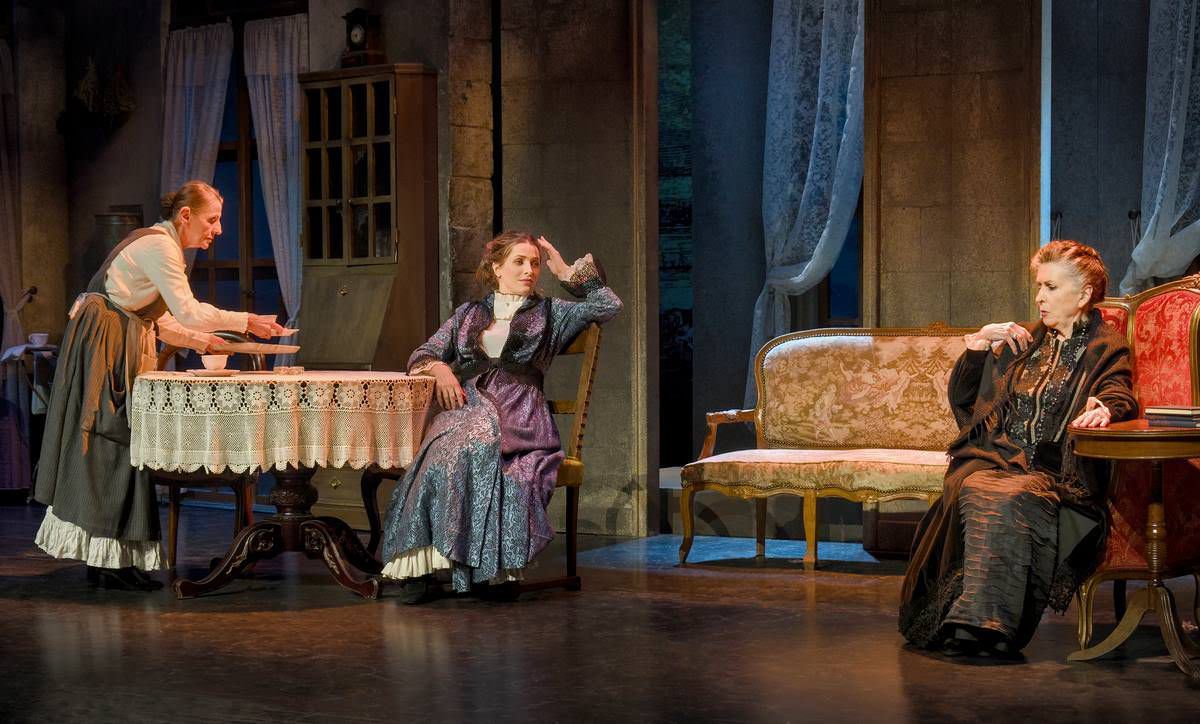
A Few Words About the Play
The play is set in Zakynthos and is a theatrical adaptation of a short play with the same title. In the once noble family of the Valeriades, only the old Valeraina knows the recipe that cures an eye disease. She has sworn to keep it secret and to provide the remedy selflessly to anyone in need. The remedy can only be inherited from one Valeraina to another, a tradition that has been maintained for over two hundred and fifty years, and it must be given before the current Valeraina dies.
However, poverty comes to shake the family and test the characters' stance towards money and moral values. Valeraina receives numerous tempting offers to sell the secret. An internal struggle between need and moral duty begins, with the remedy being the cause of the characters' conflict and Xenopoulos providing a brilliant solution.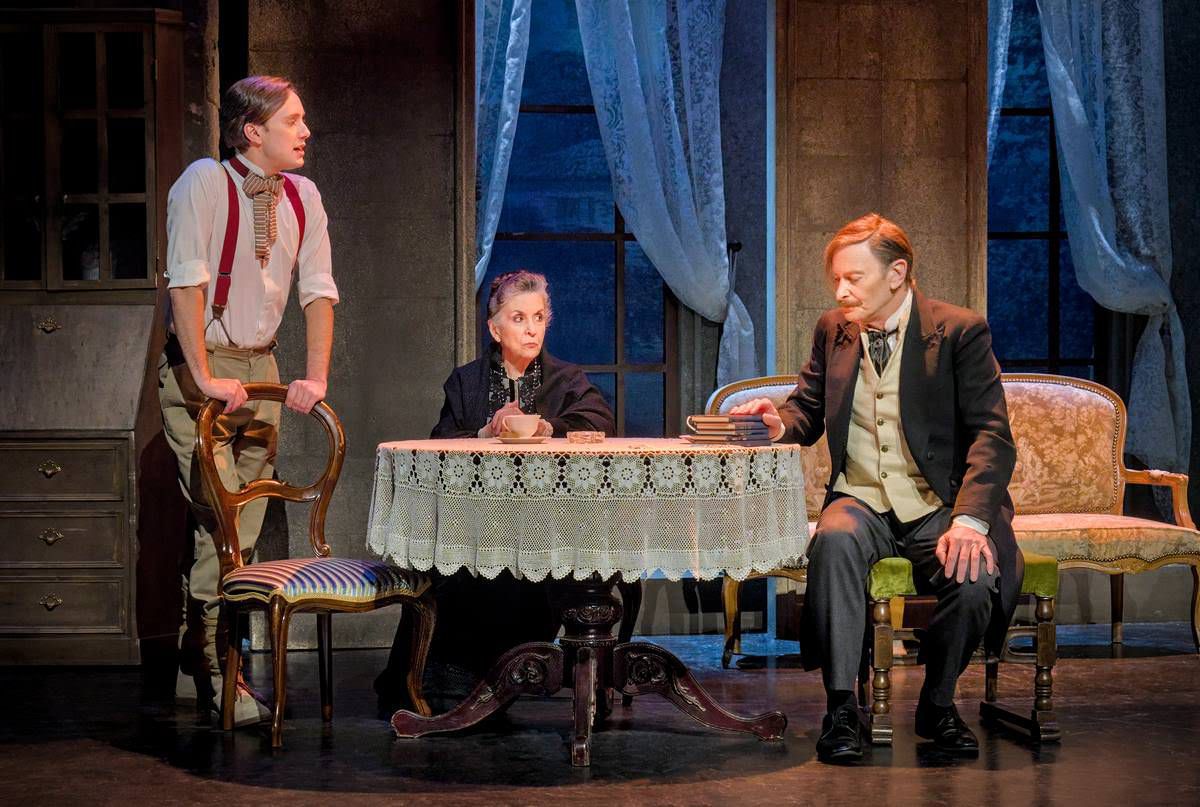
The characters' stance towards moral ideals is the central theme of the Zakynthian, suspense-filled, and twist-filled domestic drama. In difficult times, the value of honor and dignity faces off against need and money. The decision of Countess Valeraina is crucial for the future of the Valeriades family. The issue Xenopoulos raises in his work remains relevant, with the virtue of dignity on one side and the corruption of money on the other being the focus of the play.
The author himself has described “The Secret of Countess Valeraina” as “the best work of his life”. Great Greek theater actresses, such as Evangelia Paraskevopoulou, Marika Kotopouli, Kyveli, and Anna Synodinou, have performed the leading role and the play has achieved tremendous success.
“...I conceived The Secret of Countess Valeraina when I was young, wrote it as a man, re-wrote it as a middle-aged man, and completed it almost as an old man. It is the work of my entire life.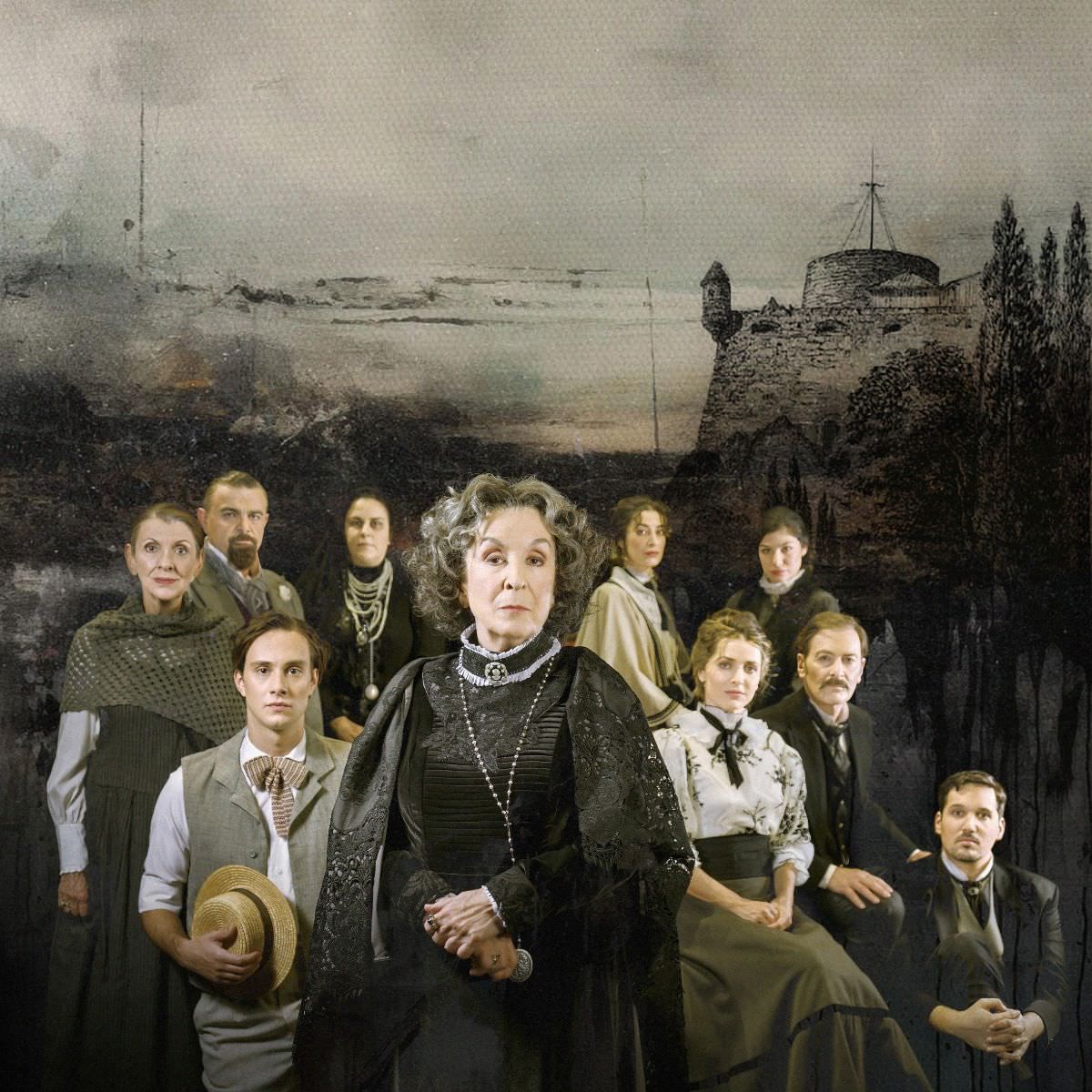
What I like most about it is the refinement and originality of the myth - I never found a similar subject in our Philology, nor could anyone easily find anything like it in foreign theater - and the strictness, the symmetry of the dramatic form. It is something deeply Zakynthian but simultaneously deeply Greek. And I managed to weave it, to put it all in one grand act, simply and naturally divided into three small parts, as the drama begins in the morning, in the same place, and ends in the evening. What we call “stage economy” appears more perfect in none of my works; and one can only notice it in the comings and goings of the characters on stage, which is a challenge not only for beginners...
Moreover, it has not a single word more than absolutely necessary for the development of the plot, the progress of the drama, and simultaneously for the characterization of the characters. All this without unnecessary embellishment, without any theatrical tricks. “With the simplest dramatic means,” notes a critic...”
Grigoris Xenopoulos, From the Prologue of 1918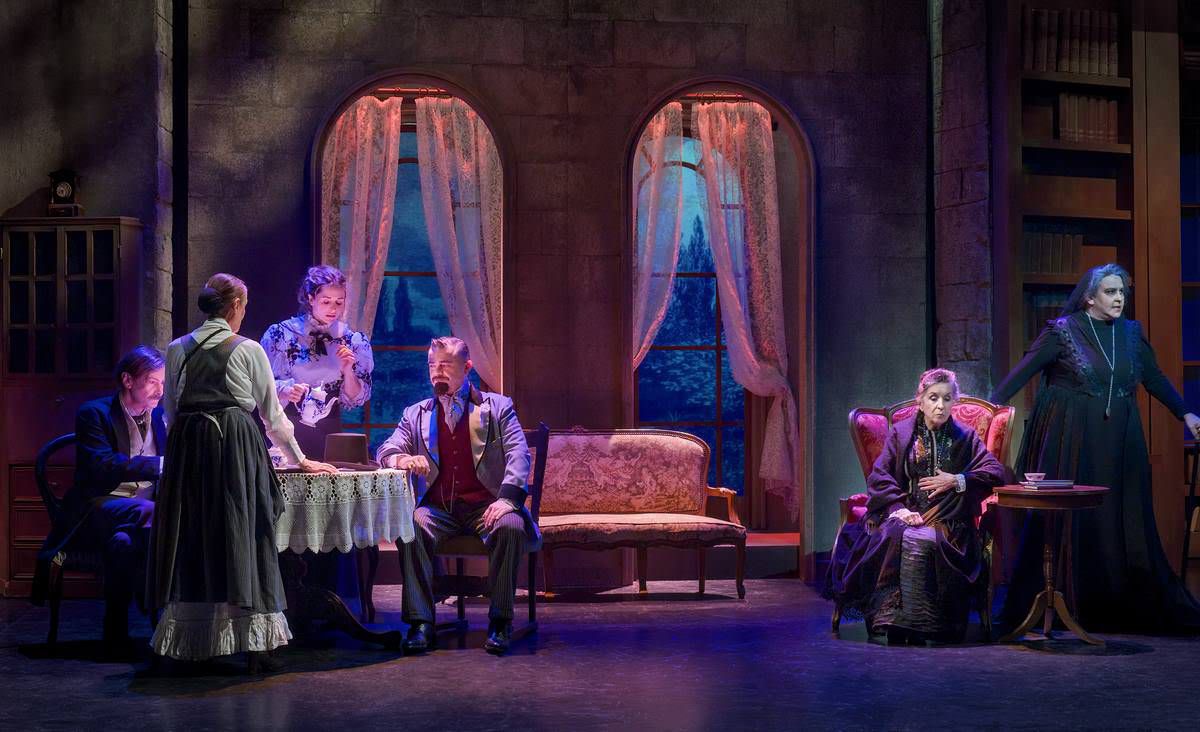
Note from Director Petros Zoulias
The SECRETS of the “SECRET”
As I worked on “The Secret of Countess Valeraina,” I discovered its immense value. Its timeless, universal value. Because with this work, the great author delves into the theater of ideas. Theater that focuses on the human being, facing society and its major issues. Like Chekhov and Ibsen, Xenopoulos here highlights, beneath the words and behaviors of his characters, a significant ideological conflict. On one side stands the old romantic world of values and tradition, and on the other the rationalistic materialistic spirit of the future. The glorious past will die in the face of the necessary birth of a modern world centered on money. Principles and values are tested from both sides. People bend. Some under the weight of difficult survival, and the other, the solitary Valeraina, under the weight of her sacred duty. Her honor and reputation. The institution of the family becomes the fierce arena for who will prevail in this tragic conflict.
The rise of capitalism and the bourgeoisie forming at the time became the basis for Xenopoulos' anxiety and concern. Where is the world going and with what value system will it proceed?
Many scholars of his work believe that Valeraina is the author himself. Although a bourgeois, within this work he encapsulates both guilt and nostalgia for a world that is disappearing. Xenopoulos' society is changing rapidly. It acquires new priorities. New morals and standards.
Xenopoulos himself considers this work his best. He conceived it when young, wrote it as a middle-aged man, and completed it as an old man. He characterizes it as a patriotic and didactic work.
In staging the play, I tried to utilize the original material. His short story. Thus, on stage, I gave flesh and bones to Valeraina's deceased mother-in-law, maintaining the language and spirit of the author. I was led to this choice because I saw how much more human the heroine became, how much less emblematic. In the short story, the rigid countess bends. In the end, she betrays her oath and her secret. This different aspect of her character, which makes her more human and vulnerable in the face of the dilemma of whether or not to sell her sacred secret, was incorporated into the performance as a small intervention by Xenopoulos the novelist into Xenopoulos the playwright.
In a time of all kinds of crises, like ours, where the moral and value system is tested daily, the play remains vivid, as if referring to the present world. Because the classic is also contemporary.
I thank the Foundation of the Hellenic World for their trust, my friend Nena for her collaboration, and all my collaborators who lovingly preserved this secret.